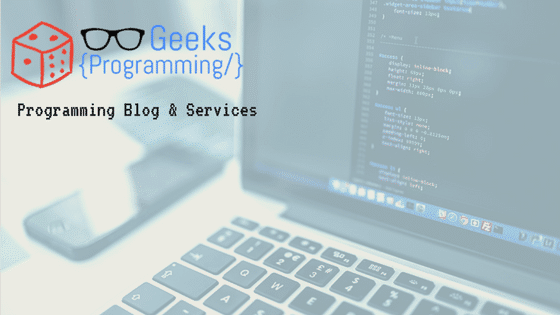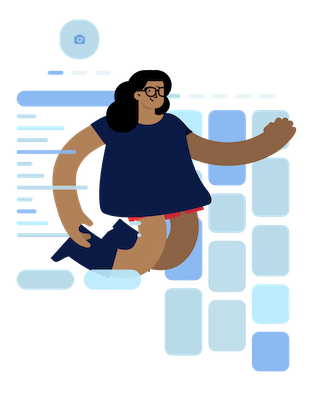
Memory management is a crucial aspect of any programming language, and C++ is no exception. As a programming beginner, understanding how to properly manage memory can be a daunting task. But fear not! In this blog post, we will explore the world of smart pointers in C++ and learn how they can revolutionize your memory management skills.
Gone are the days of manual memory allocation and deallocation, where a single mistake could lead to memory leaks or dangling pointers. Smart pointers in C++ are here to save the day! These intelligent objects not only ensure efficient memory usage but also provide automatic memory deallocation when it’s no longer needed.
In this journey through smart pointers, we will dive into various types pf smart pointers in C++, including unique_ptr, shared_ptr, and weak_ptr. We’ll discover unique features of smart pointers in C++ and understand when to use each one. Whether you’re working on a small project or a large-scale application, smart pointers will become your best friends in managing memory with confidence.
Join us as we unlock the power of smart pointers in C++. Get ready to embrace a new level of control and reliability in your code. Say goodbye to memory leaks and hello to safer and more robust programming practices. Let’s embark on this exciting adventure together
Understanding Pointers in C++
Pointers are a fundamental concept in the C++ programming language that allows developers to manipulate and work with memory directly. While they can be powerful tools, they can also be a source of confusion and errors for beginners. In this section, we will explore the basics of pointers and their role in C++, as well as the challenges and risks associated with manual memory management.
At its core, a pointer is a variable that holds the memory address of another variable. Instead of directly storing a value, a pointer stores the location in memory where the value is stored. This indirect referencing gives programmers fine-grained control over memory management and enables more efficient memory usage.
However, manual memory management using pointers can be error-prone and pose several challenges. One common challenge is memory leaks, which occur when allocated memory is not properly deallocated. For example, consider a situation where you allocate memory for a dynamically created object using the new keyword, but forget to release the memory with delete afterward. This can lead to memory leaks, where the memory is not freed and becomes inaccessible, wasting valuable resources.
Another risk is accessing invalid memory locations, which can result in undefined behavior and program crashes. For instance, if you have a pointer that points to a variable, and you mistakenly assign it the address of another variable or assign it a null value, dereferencing that pointer will lead to unpredictable consequences.
Moreover, using pointers incorrectly can lead to dangling pointers, where a pointer still points to a memory location that has been deallocated or released. If you attempt to access the object through the dangling pointer, you may encounter unexpected results or even crashes.
To mitigate these risks and challenges, modern C++ introduces smart pointers, which are a type of RAII (Resource Acquisition Is Initialization) objects that manage the lifetime of dynamically allocated objects automatically. Smart pointers in C++, such as std::unique_ptr and std::shared_ptr, provide automatic memory deallocation, reducing the risk of memory leaks and invalid memory accesses.
Introducing Smart Pointers in C++ and Their Types with example
Smart pointers are a powerful feature in C++ that help manage the lifetime and ownership of dynamically allocated objects. They provide an automated way to allocate and deallocate memory, reducing the risk of memory leaks and dangling pointers. If you’re new to C++ programming, understanding smart pointers is essential for writing robust and reliable code.
So, what exactly are smart pointers? In simple terms, smart pointers are objects that act like pointers but have additional features to manage memory automatically. They are a safer alternative to raw pointers, which require manual memory management.
In C++, there are three main types of smart pointers: unique_ptr, shared_ptr, and weak_ptr.
- unique_ptr: This type of smart pointer is designed for exclusive ownership. It ensures that only one owner exists for the dynamically allocated object. When the unique_ptr goes out of scope or is explicitly reset, it automatically deletes the object it owns.
- shared_ptr: As the name suggests, shared_ptr allows multiple pointers to share ownership of the same object. It keeps track of the number of pointers pointing to the object and deletes the object only when the last shared_ptr goes out of scope or is reset.
- weak_ptr: This type of smart pointer is used in conjunction with shared_ptr. It provides a non-owning “weak” reference to an object managed by shared_ptr. It allows you to check if the object still exists without extending its lifetime. This helps prevent circular references that can lead to memory leaks.
Using smart pointers has several advantages over raw pointers. Firstly, smart pointers automatically handle memory deallocation, eliminating the need for explicit calls to delete and reducing the risk of memory leaks. Secondly, they provide better code readability and expressiveness by clearly indicating ownership semantics. Lastly, smart pointers can help prevent common programming errors like double deletion or using dangling pointers.
Let’s consider an example. Suppose you have a function that creates a dynamically allocated object. With raw pointers, you would need to remember to deallocate the memory explicitly. However, by using smart pointers, such as unique_ptr or shared_ptr, you can ensure that the memory is automatically freed when it’s no longer needed, even in the case of exceptions or early returns.

‘unique_ptr’: Managing Exclusive Ownership
unique_ptr is another powerful smart pointer in C++ that provides a solution for managing exclusive ownership of objects. It is part of the C++ Standard Library and offers a lightweight and efficient way to handle resources that have a single owner.
unique_ptr enforces exclusive ownership, meaning that only one unique_ptr can own an object at a given time. This ensures that there are no accidental resource leaks or data races caused by multiple owners accessing and modifying the same object simultaneously.
Here’s an example to demonstrate the usage of unique_ptr:
#include <memory>
#include <iostream>
int main() {
std::unique_ptr<int> uniquePtr = std::make_unique<int>(42);
std::cout << “uniquePtr: “ << *uniquePtr << std::endl; // Output: 42
// Attempting to assign uniquePtr to another unique_ptr will result in a compilation error
// std::unique_ptr<int> anotherUniquePtr = uniquePtr; // Compilation Error
// Moving ownership from uniquePtr to anotherUniquePtr is allowed
std::unique_ptr<int> anotherUniquePtr = std::move(uniquePtr);
std::cout << “anotherUniquePtr: “ << *anotherUniquePtr << std::endl; // Output: 42
return 0;
}
In this example, we create a unique_ptr named uniquePtr that owns an integer value. When attempting to assign uniquePtr to another unique_ptr, a compilation error occurs because unique_ptr doesn’t allow copy semantics. However, we can transfer ownership from uniquePtr to anotherUniquePtr using the std::move() function.
The key benefits of using unique_ptr are its efficiency, lightweight nature, and clear ownership semantics. By utilizing unique_ptr, programmers can easily manage exclusive ownership, ensuring proper resource deallocation when it’s no longer needed.
Some common scenarios where unique_ptr is useful include managing dynamically allocated objects, handling resources with strict ownership semantics, and building data structures that require exclusive ownership, such as trees or graphs.
‘shared_ptr’: Handling Shared Ownership
shared_ptr is another powerful smart pointer in C++ that allows for the safe handling of shared ownership of objects. It is part of the C++ Standard Library and provides a convenient and efficient solution for managing resources that are shared among multiple parts of a program.
At its core, shared_ptr uses a technique called reference counting to keep track of the number of references to an object. Each shared_ptr maintains a reference count that is incremented when a new shared_ptr is created pointing to the same object and decremented when a shared_ptr goes out of scope or is explicitly reset. Once the reference count reaches zero, indicating that no more shared_ptr objects are referencing the object, the memory is automatically deallocated.
Let’s take a look at an example to understand the usage of shared_ptr:
#include <memory>
#include <iostream>
int main() {
std::shared_ptr<int> sharedPtr1 = std::make_shared<int>(42);
std::shared_ptr<int> sharedPtr2 = sharedPtr1;
std::cout << “sharedPtr1: “ << *sharedPtr1 << std::endl; // Output: 42
std::cout << “sharedPtr2: “ << *sharedPtr2 << std::endl; // Output: 42
*sharedPtr1 = 100;
std::cout << “sharedPtr1: “ << *sharedPtr1 << std::endl; // Output: 100
std::cout << “sharedPtr2: “ << *sharedPtr2 << std::endl; // Output: 100
return 0;
}
In this example, we create two shared_ptr objects, sharedPtr1 and sharedPtr2, both pointing to the same integer value. Modifying the value through either pointer affects both pointers since they share ownership of the underlying object.
By utilizing shared_ptr, C++ programmers can avoid memory leaks and segmentation faults that often occur when managing shared resources manually. The automatic memory deallocation provided by shared_ptr ensures that resources are properly released when they are no longer needed, eliminating the burden of manual memory management.
‘weak_ptr’: Breaking Cyclic Dependencies
weak_ptr is another type of smart pointer in C++ that is specifically designed to break cyclic dependencies. Cyclic dependencies occur when two or more objects hold shared ownership of each other, leading to a situation where they cannot be destructed properly. This can result in memory leaks and other issues if not handled correctly.
Unlike shared_ptr, weak_ptr does not contribute to the reference count of an object. It is a non-owning smart pointer that provides a weak reference to an object that is already managed by a shared_ptr. The purpose of weak_ptr is to observe or access the object temporarily without affecting its lifetime or preventing it from being deleted.
Here’s an example that demonstrates the usage of weak_ptr:
#include <memory>
#include <iostream>
struct Node {
std::weak_ptr<Node> next;
};
int main() {
std::shared_ptr<Node> node1 = std::make_shared<Node>();
std::shared_ptr<Node> node2 = std::make_shared<Node>();
node1->next = node2;
node2->next = node1;
std::cout << “Number of shared_ptrs pointing to node1: “ << node1.use_count() << std::endl;
std::cout << “Number of shared_ptrs pointing to node2: “ << node2.use_count() << std::endl;
return 0;
}
In this example, we create two shared_ptr objects, node1 and node2, which have a cyclic dependency on each other. To break this cyclic dependency, we can replace the shared_ptr member variable next with weak_ptr. By using weak_ptr, we prevent the reference count from being incremented, allowing the objects to be destructed properly.
Using weak_ptr enables us to resolve cyclic references and avoid memory leaks. It provides a way to access objects temporarily without affecting their lifetimes. To access the object pointed to by a weak_ptr, we can use the lock() member function, which returns a shared_ptr that can be used to safely access the object as long as it exists.

Best Practices and Guidelines
Smart pointers are an essential tool in modern C++ programming, providing automatic memory management and helping to avoid common pitfalls such as memory leaks and dangling pointers. However, to fully harness the power of smart pointers, it’s crucial to follow certain best practices and guidelines. In this section, we’ll explore three key aspects: proper initialization and reset, avoiding memory leaks and dangling pointers, and considering performance overhead.
- Proper Initialization and Reset: When using smart pointers, it’s important to initialize them correctly to ensure proper ownership and resource management. Prefer using std::make_shared or std::make_unique instead of direct initialization, as these functions handle memory allocation and initialization in a single step, reducing the chances of errors. Additionally, always reset smart pointers using the reset() function before assigning a new value or when the resource is no longer needed. This prevents memory leaks and ensures that the smart pointer releases the previously held resource.
- Avoiding Memory Leaks and Dangling Pointers: One of the primary benefits of smart pointers is their ability to automatically release memory when it’s no longer needed. However, care must be taken to avoid memory leaks and dangling pointers. Avoid using raw pointers in combination with smart pointers, as it can lead to ownership confusion and resource leaks. Instead, rely on smart pointers exclusively to manage the lifetime of dynamically allocated objects. Be mindful of circular references, as they can prevent objects from being properly deallocated. To mitigate this, consider using std::weak_ptr for non-owning references to break potential cycles.
- Performance Considerations and Overhead: While smart pointers provide safety and convenience, they do come with some performance overhead. Smart pointers typically require additional memory to store control information, and the indirection they introduce can slightly impact performance. However, in most cases, the benefits outweigh the cost. Nonetheless, it’s important to be mindful of performance-critical sections in your code. In such scenarios, consider using raw pointers or optimizing the code if the performance impact is significant.
.

Comparing Smart Pointers in C++ to other Memory Management Techniques
When it comes to managing memory in C++, there are several techniques available, each with its own advantages and disadvantages. In this section, we will compare smart pointers to other memory management techniques, including raw pointers and manual memory management, as well as traditional garbage collection.
Raw pointers and manual memory management have long been the traditional approach in C++. With raw pointers, developers have direct control over memory allocation and deallocation, but this power comes with great responsibility. Memory leaks and dangling pointers are common pitfalls, leading to bugs that are notoriously difficult to track down. Manual memory management requires explicit calls to new and delete, making it prone to human error.
On the other hand, smart pointers provide a safer and more convenient alternative. They are objects that encapsulate a raw pointer and automatically manage its lifetime based on predefined rules. The most commonly used smart pointers in C++ are std::unique_ptr and std::shared_ptr.
Compared to raw pointers, smart pointers alleviate many of the manual memory management headaches. They automatically deallocate memory when it’s no longer needed, eliminating the need for explicit delete calls. Smart pointers also provide automatic memory deallocation in case of exceptions, ensuring that resources are properly released even in error scenarios.
When compared to traditional garbage collection, smart pointers offer deterministic memory management. Garbage collection introduces a runtime overhead as it periodically scans and reclaims memory, potentially causing performance bottlenecks. In contrast, smart pointers provide immediate memory reclamation once the last reference to the object goes out of scope, avoiding the overhead associated with garbage collection.
However, it’s important to note that smart pointers are not a one-size-fits-all solution. std::unique_ptr is ideal for exclusive ownership scenarios, where a single object owns the resource. std::shared_ptr, on the other hand, allows for shared ownership among multiple objects. While this flexibility is useful, it introduces potential performance overhead due to reference counting.
Need Help with C++ Programming?
Conclusion
Smart pointers in C++ offer a powerful solution for managing memory and significantly improve the safety and reliability of code. With their automated memory deallocation and ownership management, smart pointers eliminate the risks of memory leaks, dangling pointers, and other memory-related bugs.
By leveraging smart pointers like unique_ptr, shared_ptr, and weak_ptr, developers can achieve efficient memory usage, improved code readability, and reduced maintenance overhead. These smart pointer types cater to different ownership requirements, allowing programmers to choose the appropriate one for their specific scenarios.
The introduction of smart pointers revolutionizes memory management in C++, providing a safer and more robust alternative to raw pointers and manual memory management. They ensure that resources are automatically deallocated when they are no longer needed, eliminating the burden of explicit memory deallocation and reducing the likelihood of memory-related errors.


